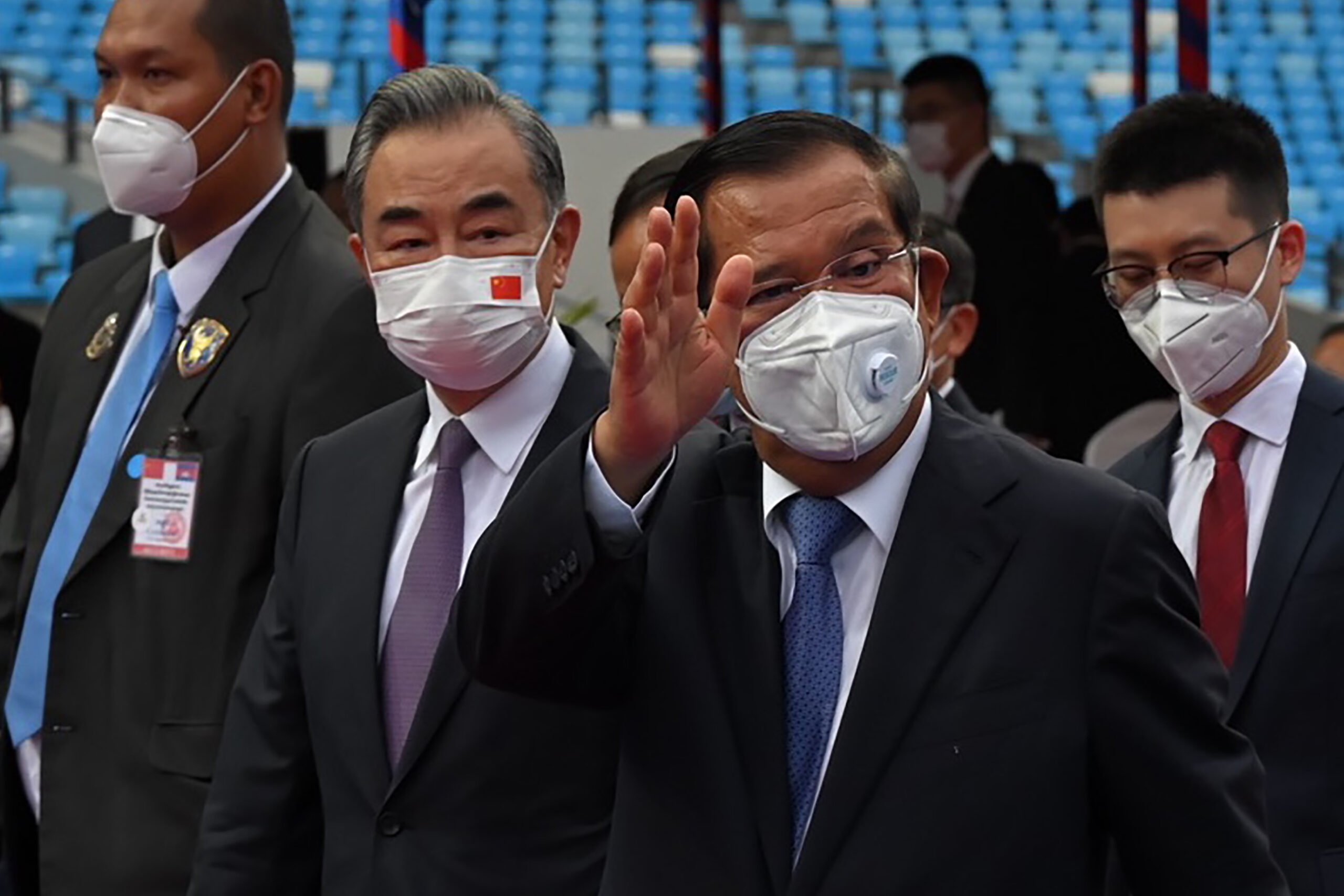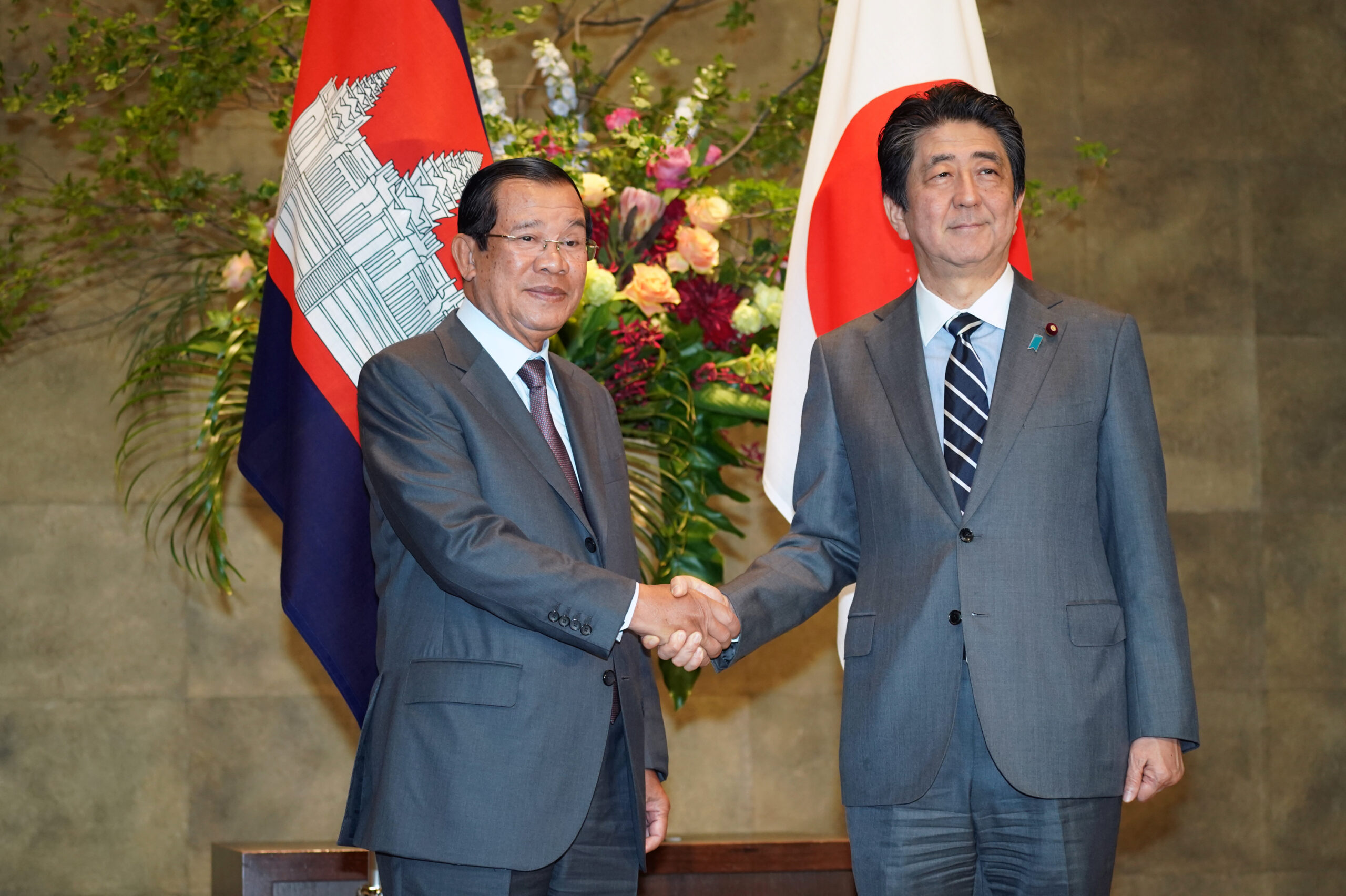At a brief meeting in Tokyo on 14 February, Japanese Foreign Minister Yoshimasa Hayashi told Hun Manet, the son of Cambodian Prime Minister Hun Sen that Japan’s government will offer assistance to Cambodia in preparation for the local elections in June and the summer 2023 elections in hopes that both will be held “democratically and in a way that reflects a variety of voices of the people.”
Hun Manet, who is the current commander of the Cambodian Army, was named the future prime minister by the ruling Cambodian People’s Party (CPP) late last year, following remarks from his father that he would like to see him become the Kingdom’s next leader.
The international community has largely withdrawn support for Cambodian elections, with the European Union suspending funding before the 2018 elections after the Hun Sen government both arrested opposition Cambodian National Rescue Party (CNRP) leader Kem Sokha and dissolved the CNRP. The fallout from Hun Sen’s ongoing opposition crackdown has left Cambodia with only two major election backers: Japan and China.
In their constant, yet pragmatic, approaches to bilateral relations with Cambodia, Tokyo and Beijing both are playing a long game in Southeast Asia, a region which has been viewed by both as an investment and an emerging marketplace.

Both countries took different approaches to election funding in 2018. When the European Union (EU) proposed economic sanctions on Cambodia, China soon ramped up infrastructure investment in the country, pouring more than $420 million in investments and infrastructure by 2020. The Cambodia-China Free Trade Agreement, signed in October 2020, increased the number of zero-tariff products to more than 90% The free trade agreement also aims to offset ongoing fallout from Cambodia’s expulsion from the EU’s Everything But Arms (EBA) scheme.
For Hun Sen and the CPP, China’s investment brings much needed domestic legitimacy, although the trust gap between Cambodians and China is growing. The CPP banked on China’s investments to lift the country from its current status to that of a middle-income country by 2030. Because Cambodia has all but shunned Western investment, its reliance on Beijing is not only necessary but alarming.
When the CNRP showed significant gains on the CPP in 2013 and were poised to grab an even larger share of parliamentary seats if they were successful in 2018, it was not surprising that both China and Hun Sen acted boldly to the possibility of change. China is fully aware of the power that Cambodia has as its proxy vote in ASEAN, going to bat for Beijing on critical issues such as the militarisation of the South China Sea through “grey-zone” aggression and related artificial island building in the Spratly Islands. As it learned from a surprising defeat in Malaysia in May 2018 of a coalition that had ruled since 1957, it is better not to leave anything to chance.
Japan took a decidedly different approach in 2018. When 45 countries signed a joint statement at the UN Human Rights Council in March 2018, Japan was not a part of it. Then-Prime Minister Shinzo Abe aimed to strike a balance between Hun Sen and China, whom he knew was well outpacing Tokyo in terms of access and opportunity. Like that of Myanmar, Japanese diplomacy and foreign policy in Cambodia remains relatively independent from that of its Western counterparts.

Japan has a history of successful diplomacy in Southeast Asia, with Cambodia serving as its centrepiece. The Vietnamese presence in Cambodia has historically been unpopular, partly a characteristic of a Khmer culture that has painful collective memory of ceding territory to a multitude of invading enemies. Following the Vietnamese invasion of the Kingdom in 1978, Cambodia was under Hanoi’s control, arguably through the government of Heng Samrin, current president of the National Assembly of Cambodia, and de facto leader of the Hanoi-backed People’s Republic of Kampuchea. During this period, Japan devised a successful policy of strategic relationship building with both Phnom Penh and Hanoi. Japanese diplomacy also meant engagement with the Khmer Rouge.
Like China today, Japan saw Southeast Asia as a steady deposit of natural resources and an untapped market for exports, as long as the proper infrastructure could be developed. Japan, suffering for decades from its horrific World War II reputation as an invading imperial power, sought to boost its standing, not only in Southeast Asia, but in the eyes of the international community.
The late 1980s to early 1990s were a trying time for Japanese diplomatic efforts. A skittish Japanese public, weary of Japan’s involvement in international affairs, recoiled at the possibility of then-Prime Minister Toshiki Kaifu sending personnel into the Persian Gulf in 1991, but were more willing to accept a Japanese leading role in Cambodia’s reconstruction. Japan’s contribution to the United Nations Transitional Authority in Cambodia (UNTAC) included the presence of civilian police, as well as ceasefire monitors, and electoral assistance. While public opinion fluctuated, it held constant even after a UN volunteer was killed in Cambodia in 1993.
Whereas “chequebook” diplomacy in 1991, a policy that equated Japanese financial contributions in lieu of personnel support for operations in Kuwait failed, Japan’s international stature grew through involvement in Cambodia. It didn’t even matter when UNTAC resulted in failure and arguably paved the way for the current 37-year regime. It proved that the Japanese could not only engage, but do so preemptively of what the U.S. thought was appropriate. Japan was willing to engage in Cambodia long before other actors.
Ostensibly, when Japan donated 10,000 ballot boxes to Cambodia ahead of the July 2018 national elections, it was not just an out-of-touch decision that temporarily caught flak from critics and human rights activists, but a policy decision rooted in a much-longer history of bilateral engagement. When the ballot boxes, worth approximately $7.5 million were delivered, there was additional meaning to Cambodia’s National Election Committee (NEC) Chairman Sik Bun Hok’s words when he told journalists, “Our Japanese friends have never abandoned us.”
Despite the fact that Japan is well behind China in terms of investment, access and infrastructure development, it remains constant and is a part of a broader strategy. While Japan has contributed more than $2.9 billion to Cambodia in official development assistance (ODA) since 1992, it hasn’t decreased economic cooperation with other Mekong countries, which are currently at loggerheads with China.
Japan’s infrastructure expertise has been useful in Cambodia. Hun Sen has sought investment from both China and Japan, asking Abe to invest $800 million for a skytrain system in the capital. Japan’s infrastructure projects, including technical assistance for education and training, agriculture and healthcare, not only provide it with increased reputation, but its international reputation for sustainable development buys it a stronger “soft power” that Chinese investment and current reputation—particularly in Sihanoukville—lack.
Japan’s investments in the 2023 election, just like that of its support for elections in 2018, are less important than a broader approach to most of Southeast Asia. Japan understands that support in 2023 is unlikely to catalyse democratisation anytime soon. Instead, the move is about striking a balance with China and preventing additional movement in its direction. Japan is interested in Cambodia in the long term and short-term reactions to immediate problems or criticisms would only undermine its position.
Playing the long game means waiting for the right opportunities. Those opportunities might come sooner than expected.
Mark S. Cogan is an Associate Professor of Peace and Conflict Studies at Kansai Gaidai University in Osaka, Japan. He is a former communications specialist with the United Nations in Southeast Asia, Sub-Saharan Africa, and the Middle East, as well as a regular columnist for the Globe.


